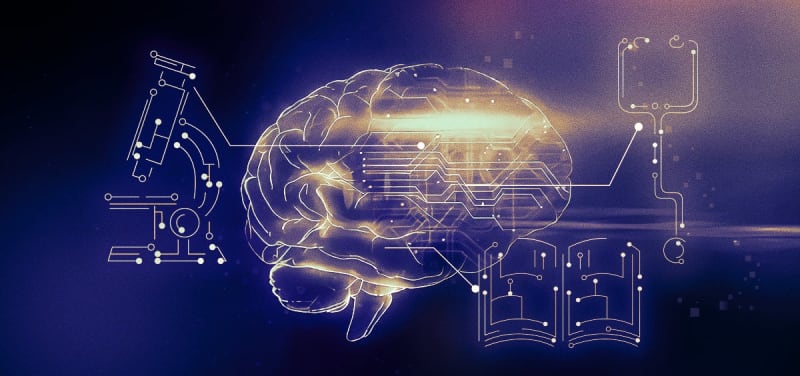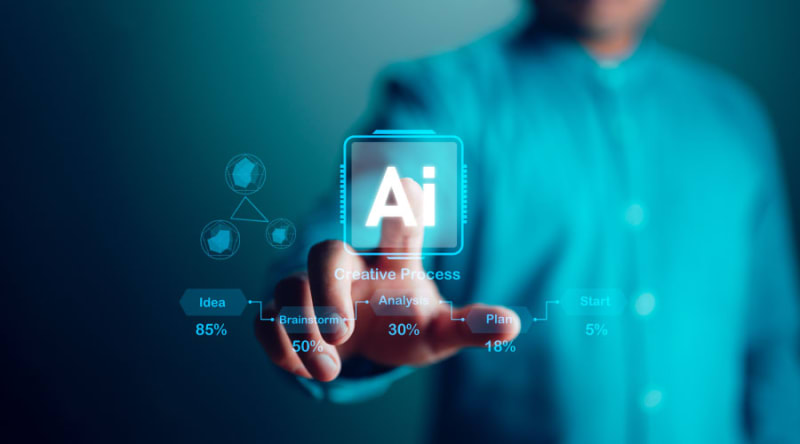Introduction
This article encompasses ethical considerations regarding the use of AI in decision-making, potential biases within AI systems, accountability for machine-generated outcomes, and the overall impact of AI on individuals and society.
Table of Contents
- What are the ethical implications of AI?
- Importance of AI Context.
- Background and evolution of the ethical implications of AI.
- Origin and Development
- Evolving perspective and Influential figures
- Significance of ethical implications of AI.
- Importance in the AI field.
- Fairness and avoiding bias.
- Privacy and data protection.
- Transparency and accountability.
- Trust and adoption.
- Autonomy and Human Dignity
- How ethical implications of a AI works
- Key characteristics and features.
- Integration with AI systems.
- Ethical decision-making processes.
- Real world examples and applications.
- Pros and cons of ethical implication of a AI.
- Advantages
- Disadvantages
- Related terms.
- AI Ethics
- Ethical Algorithm Development
- Ethical AI Governance
- Conclusion.
What are the ethical implications of AI ?
Artificial intelligence involves simulating human intelligence processes by machines, with ethical implications encompassing decision-making, potential biases, accountability, and the overall impact on individuals and society. These issues include ethical considerations regarding biases, accountability for machine-generated outcomes, and the potential biases within AI systems.
Importance in AI Context
Understanding the ethical implications of AI is crucial on as it directs the ethical development and deployment of AI systems. This involves adhering to a set of norms, principles, and standards that ensure AI technologies are utilized in a responsible, fair, and transparent manner, aligning with societal values and moral precepts.
Background and evolution of the ethical implications of AI.

Origin and Development
The concept of ethical implications in AI finds its roots in the emergence of the field of AI ethics, which gained momentum with the rapid advancement of AI technologies. The early discourse surrounding AI ethics focused on identifying and addressing the ethical challenges associated with machine intelligence.
Milestones in the evolution of AI ethics include the development of ethical guidelines, the establishment of research institutions dedicated to AI ethics, and the integration of ethical considerations in AI legislation and policy frameworks.
Evolving Perspectives and Influential Figures
As AI ethics has progressed, the focus has shifted from merely recognizing ethical challenges to developing practical solutions and mechanisms for implementing ethical principles in AI systems.
Influential figures in the field of AI ethics, such as ethicists, researchers, and policymakers, have significantly contributed to shaping the discourse, emphasizing the ethical responsibility of AI developers, users, and stakeholder.
Significance of ethical implications of AI.

The significance of ethical implications of artificial intelligence is rooted in its profound influence on the development, deployment, and societal integration of AI technologies.
Importance in the AI Field
Ethical considerations guide AI development, ensuring technology operates ethically, reflects stakeholder values, fosters public trust, mitigates risks, and promotes responsible AI use.
Fairness and Avoiding Bias
AI systems can make biases if not managed, impacting hiring practices, criminal justice, and lending. Ethical AI aims for fairness and equity, providing equal opportunities. An example is iTutor Group's $365,000 lawsuit after AI denied applications to over 200 applicants.
Privacy and Data Protection
AI systems can process large amounts of data potentially revealing sensitive information about individuals such as banking information and records. This may raise issues pertaining to data privacy and protection from misuse by corporations and governments.
Transparency and Accountability
AI systems should be transparent in decision-making processes to ensure user understanding and accountability, and to clearly identify those responsible for mistakes or harm.
Trust and Adoption
Ethical AI development and usage are crucial for its widespread acceptance and trustworthiness, as they build confidence among users, stakeholders, and regulators, thereby increasing its adoption by businesses.
Autonomy and Human Dignity
AI should enhance human capabilities while respecting autonomy and dignity, avoiding manipulative practices, ensuring informed consent, and allowing individuals to make their own decisions.
How ethical implications of AI works.
Key Characteristics and Features
The ethical implications of artificial intelligence are characterized by the integration of ethical frameworks, decision-making models, and accountability mechanisms within AI systems. This involves the incorporation of ethical principles, such as fairness, transparency, accountability, and privacy, to govern the behaviour and outcomes of AI technologies. Additionally, the operationalization of ethical implications involves the implementation of ethical oversight, auditing processes, and continuous evaluation of AI systems to ensure their compliance with ethical standards.
Integration with AI Systems
Ethical considerations are interwoven within the fabric of AI systems through the incorporation of ethical algorithms, ethical decision-making models, and mechanisms for identifying and addressing biases and ethical dilemmas. This integration aims to embed ethical values and norms within AI technologies to guide their actions and mitigate potential ethical conflicts.
Ethical Decision-Making Processes
Ethical implications drive the development of AI systems that prioritize ethical decision-making, striving to produce outcomes that align with ethical principles and societal values. This involves the implementation of decision-making models that account for ethical considerations, ethical risk assessments, and ethical impact evaluations to ensure that AI-generated outcomes uphold ethical standards.
Real-World Examples and Applications
- Application 1: Ethical implications in autonomous vehicles.
In the domain of autonomous vehicles, ethical implications are exemplified in the development of decision-making algorithms that govern the behaviour of self-driving cars in critical situations. For instance, ethical considerations come to the forefront when determining how autonomous vehicles prioritize the safety of passengers, pedestrians, and other road users, thereby illustrating the ethical complexities of AI in the context of automotive technologies.
- Application 2: Ethical considerations in healthcare AI.
In healthcare, the ethical implications of AI are demonstrated in the deployment of AI technologies for medical diagnosis, treatment recommendation, and patient care. Ethical considerations encompass issues related to data privacy, patient consent, and fair allocation of healthcare resources, emphasizing the need for AI systems to align with medical ethics and uphold patient welfare.
- Application 3: AI ethics in financial services.
The ethical implications of AI in finance entail ensuring the ethical use of AI algorithms for credit scoring, risk assessment, and fraud detection while mitigating the potential discriminatory impacts of AI-driven decisions. This highlights the imperative of ethical oversight and regulatory compliance in safeguarding the ethical integrity of AI applications within financial institutions.
Pros and cons of ethical implications of AI.

Advantages
- Ethical Decision Support: The ethical implications of AI facilitate the development of AI systems that offer decision support grounded in ethical principles, enabling responsible and morally sound decision-making processes.
- Improved Trust and Transparency: By embracing ethical implications, AI technologies can enhance public trust and transparency, fostering confidence in the ethical conduct and accountability of AI systems. Disadvantages
- Algorithmic Bias and Discrimination: Despite ethical considerations, AI systems may still exhibit biases, leading to discriminatory outcomes that disproportionately impact certain demographic groups.
- Ethical Framework Complexity: Implementing ethical implications in AI systems can introduce complexities in algorithmic design, operationalization, and validation, potentially posing challenges in navigating ethical dilemmas effectively.
Related Terms.
AI Ethics.
AI ethics pertains to the ethical dimensions and considerations associated with the development, deployment, and impact of AI technologies within societal, moral, and legal frameworks.
Ethical Algorithm Development.
Ethical algorithm development involves the formulation and implementation of algorithms that prioritize ethical principles, fairness, and accountability within AI systems.
Ethical AI Governance.
Ethical AI governance encompasses the regulatory and policy frameworks aimed at governing the ethical utilization and oversight of AI technologies, ensuring their alignment with ethical standards and societal values.
Conclusion.
In conclusion, the ethical implications of artificial intelligence are a pivotal aspect of AI's advancement. Understanding, addressing, and integrating ethical considerations within AI systems are indispensable for fostering responsible, trustworthy, and beneficial AI technologies that align with ethical expectations and societal well-being.
References.







Top comments (1)
Such content from u!!! 😁